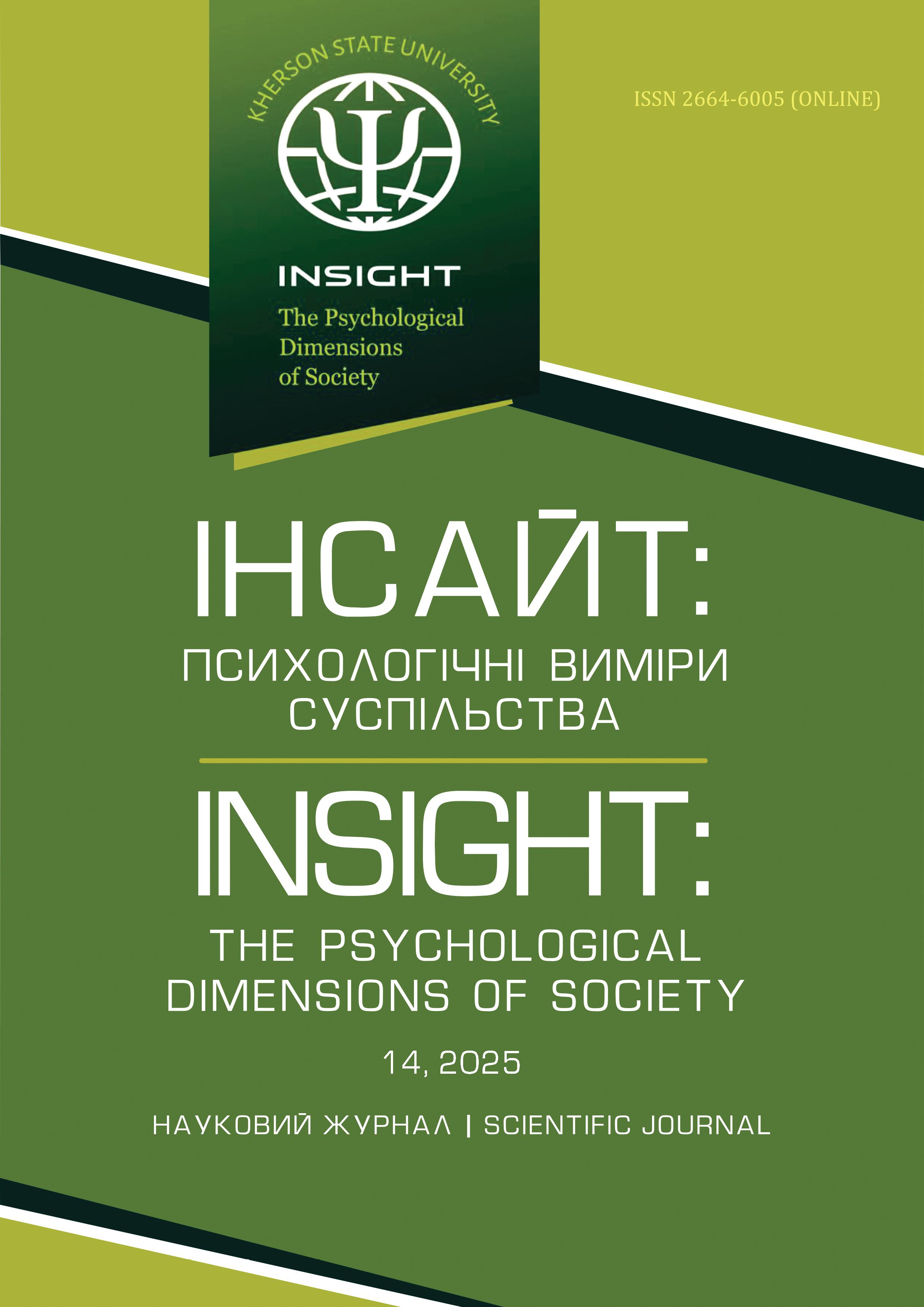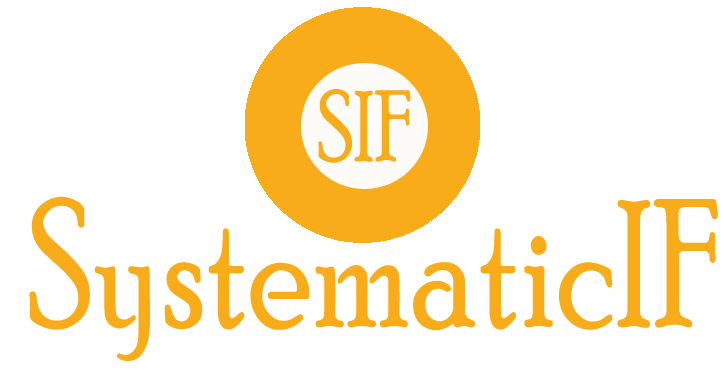Social and Individual-Psychological Factors of an Individual’s Propensity for Corrupt Behavior
Abstract
The article presents the results of a study of social and psychological elements associated with corrupt behavior. The aim of the study is to analyze the social and individual-psychological factors associated with corrupt actions and to investigate the relationship between the Dark Triad traits and an individual’s propensity for corrupt behavior. Methods: The Short Dark Triad questionnaire by D. Paulhus and K. Williams (2002), A. Furnham “Money Attitude and Behaviour Scale” (modified version by M. Simkiv (2012) “Money Perceptions and Behavior Scale”). Results. Power, the characteristics of a corrupt person (egocentrism, lack of guilt), moral traits (manipulativeness, tendency to use others to further one's own goals), self-esteem traits (negative self-esteem or guilt), and a variety of individual personality traits (such as Machiavellianism, narcissism, and psychopathy) are all proven to be causes of corrupt behavior. Empirical research has demonstrated a relationship between the Dark Triad qualities and various money attitudes, which in turn enables the prediction of corrupt conduct proclivity. The Dark Triad characteristics have been shown to be predictive of financial manipulation and anxiety. Discussion and conclusions: It is clarified that maladaptive moral dysfunction, a lack of empathy, the pursuit of profit, an urge for control and power, a low degree of fear of punishment, and the impacts of group influence are the social, psychological, and individual components of corrupt behavior. These variables, together with cultural, social, and economic variables, influence how likely it is for someone to engage in corrupt activity. A tendency toward corrupt behavior is also linked to aspects of money behavior and the Dark Triad qualities. Research indicates that persons with a strong Machiavellian streak are more likely to employ financial tactics and behaviors that include manipulating or taking advantage of others. Narcissists frequently use enrichment to increase their sense of self-worth. Psychopaths' lack of empathy and capacity for taking advantage of others makes them more likely to make hazardous financial judgments and to manipulate money.
Downloads
References
Bai B., Liu X., Kou Y. Belief in a just world lowers bribery intention. Asian Journal of Social Psychology. 2016. Vol. 19(1), P. 66–75. https://doi.org/10.1111/ ajsp.12108
Bajaj B., Robins R. W., Pande N. Mediating role of self-esteem on the relationship between mindfulness, anxiety, and depression. Personality and Individual Differences. 2016. Vol. 96. P. 127–131. https://doi. org/10.1016/j.paid.2016.02.085
Connelly B., Ones D. The personality of corruption: a nationallevel analysis. Cross-Cultural Research. 2008. Vol. 42(4). P. 353–385. https://doi. org/10.1177/1069397108321904 .
Dong B., Dulleck U., Torgler B. Conditional corruption. Journal of Economic Psychology. 2012. Vol. 33(3). P. 609–627. https://doi.org/10.1016/j. joep.2011.12.001 Dupuy K., Neset S. Bergen. The cognitive psychology of corruption. U4 Anti-Corruption Resource Centre, Chr. Michelsen Institute (U4 Issue 2018:2). URL: https:// www.u4.no/publications/the-cognitive-psychology-ofcorruption# the-existing-evidence-base-onthe-cognitive- psychology-of-corruption
Egan V., Hughes N., Palmer E. J. Moral disengagement, the dark triad, and unethical consumer attitudes. Personality and Individual Differences. 2015. Vol. 76. P. 123–128. https://psycnet.apa.org/ doi/10.1016/j.paid.2014.11.054
Fang Y., Niu Y., Dong Y. Exploring the relationship between narcissism and depression: The mediating roles of perceived social support and life satisfaction. Personality and Individual Differences. 2021. Vol. 173. P. 110604. https://doi.org/10.1016/j.paid.2020.110604
Forman N. Mind Over Money: Mind over money: how to banish your financial headaches and achieve money sanity. Toronto: Doubleday, 1987. 248 p.
Furnham A., Richards S., Paulhus D. The Dark Triad: A 10 year review. Social and Personality Psychology Compass. 2013. Vol. 7(3). P. 199–215. https://doi. org/10.1111/spc3.12018
Fromm E. To Have or to Be? Harper & Row, 1976. 215 р. URL: https://hromadalib.files.wordpress. com/2015/12/fromm_2010_have.pdf
Gino F., Ayal S., Ariely D. Contagion and differentiation in unethical behavior: The effect of one bad apple on the barrel. Psychological Science. 2009. Vol. 20(3). P. 393–398. https://doi.org/10.1111/ j.1467-9280.2009.02306.x
Goldberg H., Lewis R. Money Madness: The Psychology of Saving, Spending, Loving and Hunting Money. London: Springwood, 1978. 229 p.
Gómez-Leal R., Megías-Robles A., Gutiérrez-Cobo M. J., Cabello R., Fernández-Abascal E. G., Fernández- Berrocal P. Relationship between the Dark Triad and depressive symptoms. Brain, Cognition and Mental Heals. 2019. Vol. 7. P. e8120. http://dx. doi.org/10.7717/peerj.8120
Guerrero M., Rodríguez-Oreggia E. On the individual decisions to commit corruption: A methodological complement. Journal of Economic Behavior and Organization. 2008. Vol. 65. P. 357–372. https://doi.org/10.1016/j.jebo.2005.09.006
Hajhoseiny S., Fathi Z., Shafiei H. Are those with darker personality traits more willing to corrupt when they feel anxious? Iranian Journal of Management Studies. 2019. Vol. 12(3). P. 451. https://doi. org/10.22059/ijms.2019.266704.673335
Jones D. N. What’s mine is mine and what's yours is mine: the Dark Triad and gambling with your neighbor’s money. Journal of Research in Personality. 2013. Vol. 47. P. 563–571. https://psycnet.apa. org/doi/10.1016/j.jrp.2013.04.005
Jones D. N., Figueredo A. J. The core of darkness: uncovering the heart of the Dark Triad. European Journal of Personality. 2013. Vol. 27. P. 521–531. https:// psycnet.apa.org/doi/10.1002/per.1893
Jones D.N., Paulhus D.L. Introducing the Short Dark Triad (SD3): A Brief Measure of Dark Personality Traids. Assessment. 2014. Vol. 21(1). P. 28–41. https://psycnet. apa.org/doi/10.1177/1073191113514105
Кікалішвілі М. В. Соціально-психологічні фактори корупції. Електронне наукове видання “Аналітично-порівняльне правознавство”. 2023. № 4. С. 324–329. https://doi.org/10.24144/2788- 6018.2023.04.54
Liang Y., Liu L., Tan X., Huang Z., Dang J., Zheng W. The effect of self-esteem on corrupt intention: The mediating role of materialism. Frontiers in Psychology. 2016. Vol. 7. P. 1–11. https://doi.org/10.3389/ fpsyg.2016.01063 .
Linton D. K., Power J. L. The personality traits of workplace bullies are often shared by their victims: is there a dark side to victims? Personality and. Individual Differences. 2013. Vol. 54. P. 738–743. https:// psycnet.apa.org/doi/10.1016/j.paid.2012.11.026 .
Лозинський О. М. Психологія політичної корупції. Львів: В-во “СПОЛОМ”, 2017. 368 с. URL: https:// ena.lpnu.ua:8443/server/api/core/bitstreams/ ad75e19e-b8cc-42d9-85f7-a9ce21c755 43 /content
Myers D. G. “How nice people get corrupled?” In ExplGrin o Social Psychology, McGraw- Hill, Inc., USA. 1994. URL: https://slideplayer.com/slide/9633618/
O’Boyle E. H., Forsyth D. R., Banks G. C., McDaniel M. A. A meta-analysis of the Dark Triad and work behavior: a social exchange perspective. Journal Applied Psychology. 2012. Vol. 97. P. 557–579. https://psycnet.apa.org/doi/10.1037/a0025679
Pacheco-Unguetti A. P., Acosta A., Callejas A., Lupianez J. Attention and anxiety: Different attentional functioning under state and trait anxiety. Psychological Science. 2010. Vol. 21(2). P. 298–304. https://doi. org/10.1177/0956797609359624
Paulhus D. L., Williams K. M. The dark triad of personality: Narcissism, Machiavellianism, and psychopathy. Journal of research in personality. 2002. Vol. 36 (6). P. 556–563. https://doi.org/10.1016/ S0092-6566(02)00505-6
Pillay K. The psychology of corruption. URL: https:// www.corruptionwatch.org.za/the-psychology- of-corruption/ Popovych I., Borysiuk A., Semenov O., Semenova N., Serbin I., Reznikova O. Comparative analysis of the mental state of athletes for risk-taking in team sports. Journal of Physical Education and Sport. 2022a. Vol. 22(4). P. 848–857. https:// doi.org/10.7752/jpes.2022.04107
Popovych I., Halian I., Lialiuk G., Chopyk R., Karpenko Ye., Melnyk Yu. Research of young female handball players’ self-actualizing mental states. Journal of Physical Education and Sport. 2022b. Vol. 22(7). P. 1599– 1607. https://doi.org/10.7752/jpes.2022.07201
Rabl T. The impact of situational influences on corruption in organizations. Journal of Business Ethics, 2011. Vol. 100(1). P. 85–101. https://psycnet.apa. org/doi/10.1007/s10551-011-0768-2
Rabl T., Kuhlmann T. M. “Why or why not? Rationalizing corruption in organizations”. Cross Cultural Management: An International Jounal. 2009. Vol. 16(3). P. 268–286. https://doi. org/10.1108/13527600910977355
Rachman S. Fear of contamination. Behaviour Research and Therapy, 2004. Vol. 42(11). P. 1227–1255. https://doi.org/ 10.1016/j.brat.2003.10.009
Roeser K., McGregor V. E., Stegmaier S., Mathew J., Kübler A., Meule A. The Dark Triad of personality and unethical behavior at different times of day. Personality and. Individual Differences. 2016. Vol. 88. P. 73–77. http://dx.doi.org/10.1016/j. paid.2015.09.002
Sandvik A. M., Hansen A. L., Hystad S. W., Johnsen B. H., Bartone P. T. Psychopathy, anxiety, and resiliency - psychological hardiness as a mediator of the psychopathy-anxiety relationship in a prison setting. Personality and Individual Differences. 2015. Vol. 72. P. 30–34. https://doi. org/10.1016/j. paid.2014.08.009
Schutte N. S., Malouff J. M., Bobik C., Costo T. D., Greeson C., Jedlicka C., Rhodes E., Wendorf G. Emotional intelligence and interpersonal relations. The Journal of Social Psychology. 2001. Vol. 141(4). P. 523–536. https://doi.org/10.1080/00224540109600569
Shapiro G. K., Burchell B. J. Measuring financial anxiety. Journal of Neuroscience, Psychology, and Economics. 2012. Vol. 5(2). P. 92–103. https://doi.org/10.1037/a0027647
Shengbo L., Fiaz M., Mughal Y. H., Wisetsri W., Ullah,I., Ren D., Kiran A., Kumar Kesari K. Impact of dark triad on anxiety disorder: Parallel mediation analysis during pandemic. Frontiers in Psychology. 2022. Vol. 13. P. 1–12. https://doi.org/10.3389/ fpsyg.2022.914328
Сімків М. В. Модифікований варіант методики А. Фернема “Шкала грошових уявлень та поведінки”. Освіта регіону. 2012. №2. C. 295– 301. URL: https://social-science.uu.edu.ua/article/ 829
Sobhani M., Bechara A. A somatic marker perspective of immoral and corrupt behavior. Social Neuroscience. 2011. Vol. 6. P. 640–652. https://doi.org/10.1 080%2F17470919.2011.605592
Tan X., Liu L., Huang Z., Zheng W. Working for the Hierarchical System: The Role of Meritocratic Ideology in the Endorsement of Corruption. Political Psychology. 2017. Vol. 38(3). P. 469–479. http://dx. doi.org/10.1111/pops.12341
Tan X., Liu L., Huang Z., Zheng W., Liang Y. The Effects of General System Justification on Corruption Perception and Intent. Frontiers in Psychology. 2016. Vol. 7. P. 1–11. https://doi.org/10.3389/ fpsyg.2016.01107
Tan X., Liu L., Zheng W., Huang Z. Effects of social dominance orientation and right‐wing authoritarianism on corrupt intention: The role of moral outrage. International Journal of Psychology. 2016. Vol. 51(3). P. 213–219. https://doi.org/10.1002/ ijop.12148
Tsirimokou C., Richardson C., Palaskas T. Emotional intelligence and Machiavellianism: A meta-analysis. Hellenic Journal of Psychology. 2021. Vol. 18(3). P. 311–328. https://doi. org/10.26262/hjp. v18i3.8155
Transperency Internetional. Corruption Perceptions Index, CPI. 2022. URL: https://www.transparency. org/en/cpi/2022
Vranka M., Bahník S. Predictors of bribe-taking: the role of bri-be size and personality. Frontiers in Psychology. 2018. Vol. 9(10). P. 1511. http://dx.doi. org/10.3389/fpsyg.2018.01511
Зарічанський О. А. Психологічні тактики виправдання корупції. Науковий вісник Сіверщини. Серія: Освіта. Соціальні та поведінкові науки 2022. № 2(9). С. 114–129. URL: http://sjeducation.academysps. edu.ua/wp-content/uploads/2022/10/
Zarichanskyi-O.A..pdf Zhao H., Zhang H., Xu Y. Does the dark triad of personality predict corrupt intention? The mediating role of belief in good luck. Frontiers in Psychology. 2016. Vol. 7(APR). P. 1–16. https://doi.org/10.3389/ fpsyg.2016.00608
Authors who publish with scientific journal agree to the following terms:
• All scientific papers may be freely copied and distributed on any medium and in any format, provided that the references to the initial data of the scientific work are indicated.
• Authors retain copyright and grant the journal right of first publication with the work simultaneously licensed Creative Commons Attribution License .
• Authors are able to enter into separate, additional contractual arrangements for the non- exclusive distribution of the journal’s published version of the work (institutional repository, your website, monograph), with an acknowledgement of its initial publication in this journal.





































